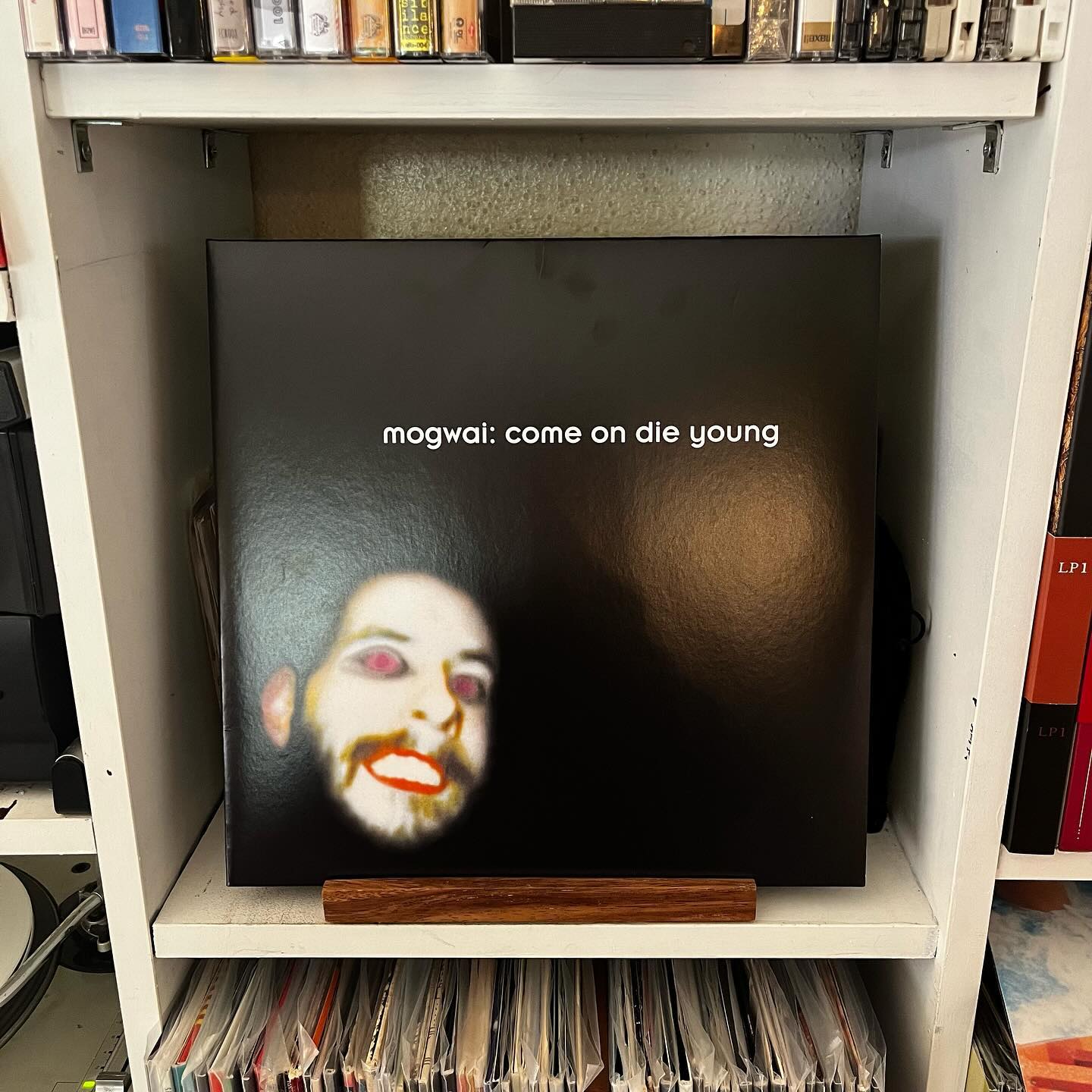 It’s hard to overstate just how pivotal a release Young Team was. Before that record, the term “post rock” was used to describe a large variety of vaguely experimental groups that drew more from Krautrock and jazz than pop rock traditions: bands like Tortoise, Bark Psychosis, June of 44, even Stereolab.
It’s hard to overstate just how pivotal a release Young Team was. Before that record, the term “post rock” was used to describe a large variety of vaguely experimental groups that drew more from Krautrock and jazz than pop rock traditions: bands like Tortoise, Bark Psychosis, June of 44, even Stereolab.
On the other side of that record though, the term conjures images of heavily effected electric guitars and dramatic songwriting. It was such a sea change that as more bands started using those building blocks to similar effect, they were lambasted as Mogwai ripoffs.
Mogwai themselves seemed conscious of this, and sought to distance themselves. Their sophomore record is still mostly instrumental guitar-based music, but their penchant for increasing the dynamics of the songs until they break apart is largely gone.
Come On Die Young is hardly a subdued affair, but it lacks the monumental moments of amp-shattering noise that supported first-album-standouts like “Yes! I am a Long Way from Home” or “Mogwai Fear Satan.” And as someone who first came to Mogwai through their heavier tracks, CODY stands as a bit of a surprise.
But, throughout their lengthy career, Mogwai has built one of the most diverse catalogs in post rock. I’m not sure how it would have sounded to fans with a single other record to compare it to, but from the other side of their varied body of work, it’s clearly an important cornerstone in the multi-faceted sonic voice the group has built.
Of course, the conversation with any Mogwai record is where it fits in the rankings of their enormous catalog. And as far as I can tell, there’s not much consensus among Mogwai fans. Personally, it might not crack my top five, but that’s more a reflection of the other records than a slight against this. Come On Die Young is indisputably an essential record in a discography filled with essential records.